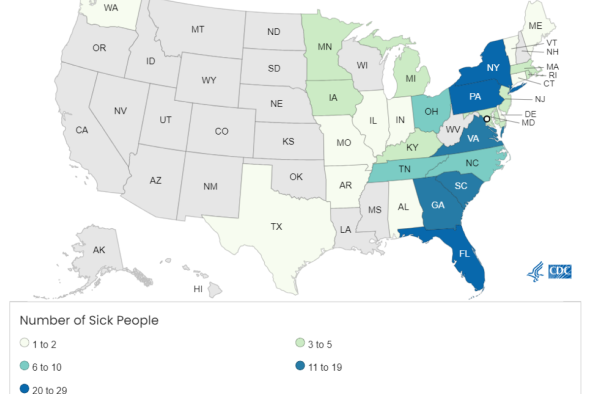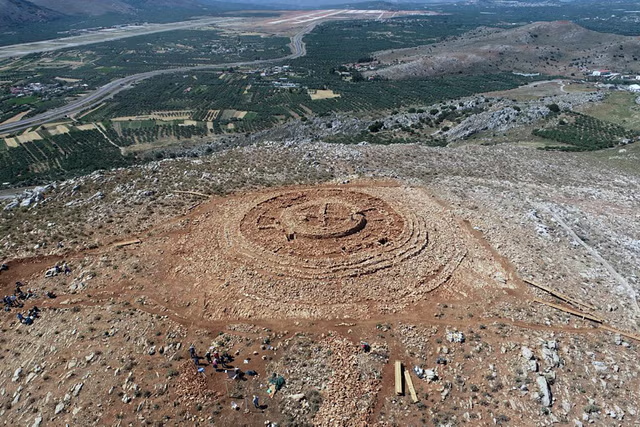A new study by Harvard social science researchers suggests that aliens may have been living on Earth for a while.
The research paper—which is yet to be peer-reviewed—suggests that life forms from other worlds could be living underground on Earth or within the moon, and that UFOs and other unidentified anomalous phenomena (UAP) may in fact be evidence for them getting around.
The study suggests an "unconventional" explanation for UAP, with the authors of the paper hailing from Harvard University's Human Flourishing Program, which researches the factors that contribute to human well-being and flourishing.
UAP are any objects or phenomena that cannot be immediately identified or explained by known human-made or natural sources. The authors point out that the "A" in UAP represents "anomalous" in their study, rather than "aerial" as is commonly the case, because some UAP are not only airborne but may travel underwater.
UAP have been reported in various forms, including spheres, discs, triangles, and other shapes, ranging in size from small orbs to large craft. Many exhibit flight patterns and maneuvers that defy conventional aerodynamics, such as sudden changes in direction, high speeds, and the ability to hover without apparent propulsion systems.
Last summer, 36-year-old air force veteran David Grusch caused a media storm after he said that a top-secret U.S. military program had found the wreckage of several fully intact unidentified aerial craft, some of which contained dead non-human pilots.
A 2023 report from the Office for the Director of National Intelligence found that there were 510 UAP sightings in 2022, higher than the 366 seen in 2021. Of these, 171 were considered to "appear to have demonstrated unusual flight characteristics or performance capabilities, and require further analysis."
"Hypotheses for such phenomena tend to fall into two classes: a conventional terrestrial explanation (e.g., human-made technology), or an extraterrestrial explanation (i.e., advanced civilizations from elsewhere in the cosmos)," the Harvard researchers wrote in the new paper.
"However, there is also a third minority class of hypothesis: an unconventional terrestrial explanation, outside the prevailing consensus view of the universe," they wrote. "This is the ultraterrestrial hypothesis, which includes as a subset the 'cryptoterrestrial' hypothesis, namely the notion that UAP may reflect activities of intelligent beings concealed in stealth here on Earth (e.g., underground), and/or its near environs (e.g., the moon), and/or even "walking among us" (e.g., passing as humans)."
In the paper, the researchers discuss four theories of how aliens may be living alongside us, the first of which—the human cryptoterrestrials theory—suggests that there may be an ancient human civilization much more technologically advanced than our own that has somehow survived in secret.
The second theory is that there is a technologically advanced non-human civilization that evolved on Earth in secret, created by an ape-like hominid or some "unknown, intelligent dinosaurs."
The third suggests that there are aliens or humans from the future that live on the Earth in secret, and the fourth suggests there are "magical cryptoterrestrials" akin to "earthbound angels," which the researchers compare to "fairies, elves, nymphs."
"The principal weakness of [the final theory], by contrast, is its utter strangeness, particularly for readers schooled to limit themselves to modes of explanation within the bounds of, say, the standard model of physics," the researchers write in the paper. "While belief in extraterrestrials is tenable, belief in (something like) fairies is simply not a live option for many scientists.
"Although this idea is likely to be regarded skeptically by most scientists, such are the nature of some UAP that we argue this possibility should not be summarily dismissed, and instead deserves genuine consideration in a spirit of epistemic humility and openness."
However, the majority of experts in the field do not believe that UFOs or UAP are evidence of extraterrestrial activity.
"I think these encounters capture the imagination differently for different people," Joshua Semeter, a professor of electrical and computer engineering and director of the Center for Space Physics at Boston University, previously told Newsweek. "As a technologist, my speculation is that some form of advanced technology may be at play. But I remain confident that it is human technology. There are next-generation propulsion systems that could account for the unfamiliar flight characteristics observed.
"For me, the leap to speculations about aliens is a leap too far. But it is important to retain an open mind as we solve this mystery."
Do you have a tip on a science story that Newsweek should be covering? Do you have a question about UAPs? Let us know via science@newsweek.com.
Disclaimer: The copyright of this article belongs to the original author. Reposting this article is solely for the purpose of information dissemination and does not constitute any investment advice. If there is any infringement, please contact us immediately. We will make corrections or deletions as necessary. Thank you.



